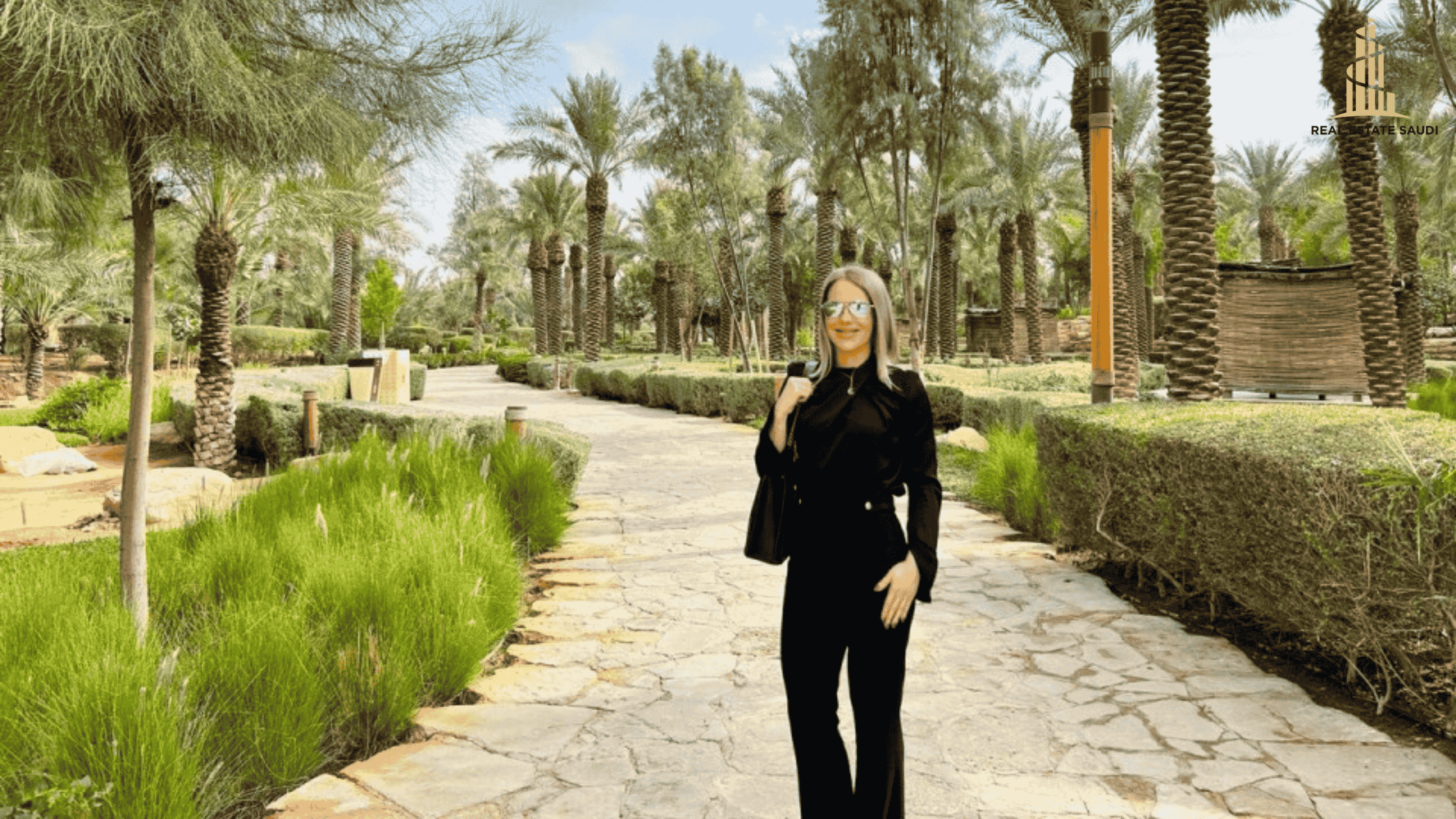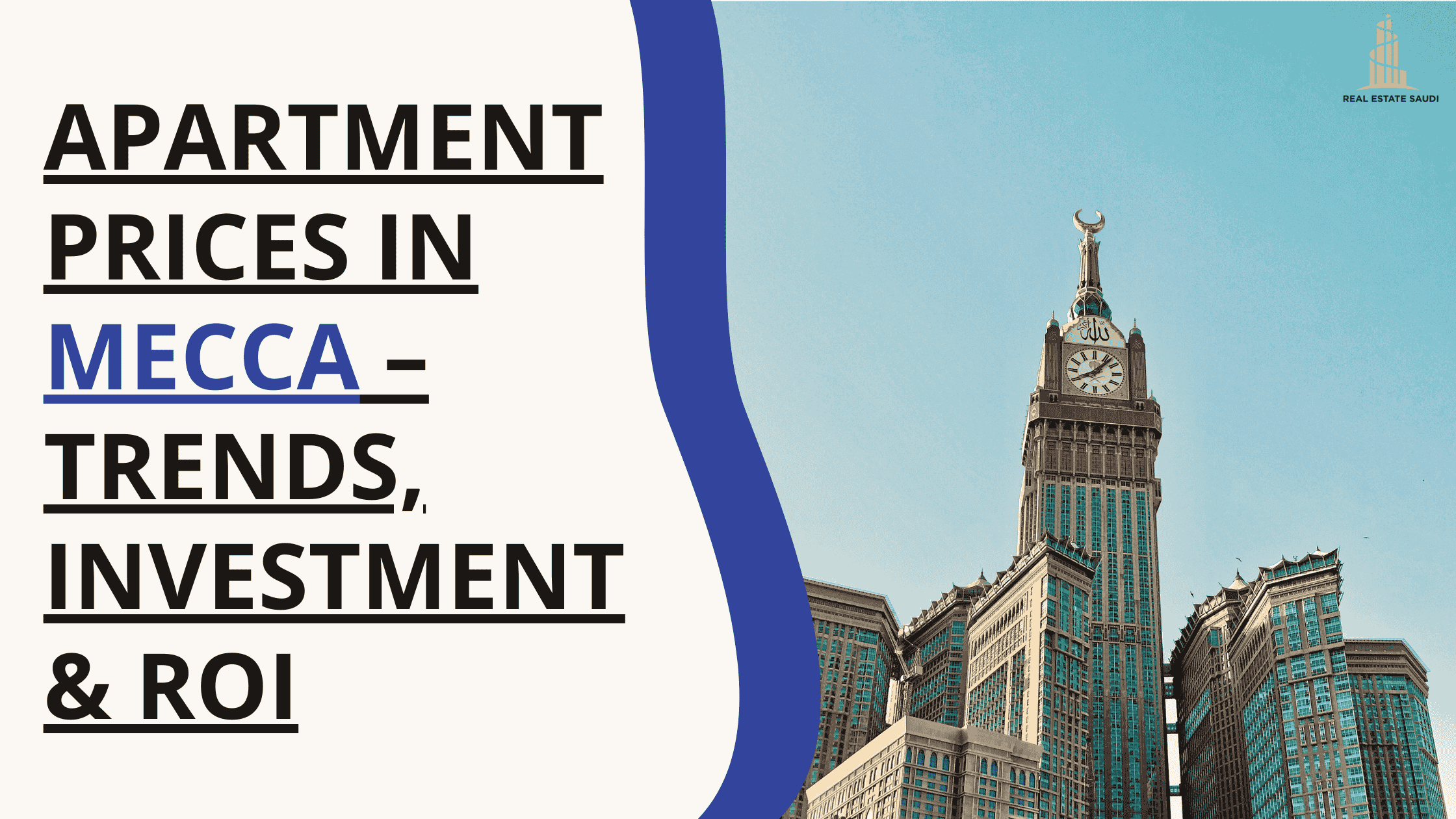Saudi Arabia is a major destination for expats and professionals looking for career growth, a tax-free salary, and a high standard of living. However, understanding the cost of living is crucial to determining how much salary is enough to sustain a comfortable lifestyle. Whether you are a single professional, a couple, or a family, factors like location, housing, transportation, education, and lifestyle choices greatly influence your monthly expenses.
This guide provides a detailed breakdown of living costs in Riyadh, Jeddah, and Dammam, along with salary benchmarks, financial planning tips, and investment opportunities to help you make an informed decision before moving to Saudi Arabia.
For expert guidance on real estate investment and cost-of-living insights, visit Real Estate Saudi.
Factors Affecting the Cost of Living in Saudi Arabia
1. Location: City vs. Suburban Living
- Riyadh (capital city) has the highest rental prices, followed by Jeddah and Dammam.
- Suburban areas and smaller cities like Al-Khobar, Jubail, and Madinah offer lower living costs.
- Expats who prefer modern infrastructure and business hubs often choose Riyadh, while those looking for a more relaxed coastal lifestyle opt for Jeddah.
2. Housing & Rent Costs
- Riyadh: A 1-bedroom apartment costs SAR 2,600 – 3,200/month, while a 3-bedroom apartment costs SAR 6,000 – 9,000/month.
- Jeddah: Prices range from SAR 2,000 – 2,800/month for a 1-bedroom unit, with 3-bedroom options costing SAR 5,500 – 8,500/month.
- Mecca: A similar 1-bedroom apartment costs SAR 1,000 – 1,300/month.
- Utilities (Electricity, Water, Gas): Average SAR 345 – 425/month.
🔗 For an in-depth property guide, visit: Cost of Living in Saudi Arabia
3. Transportation Costs
- Fuel Prices: A gallon of gasoline costs SAR 7.9 – 9.6.
- Public Transport: A one-way metro or bus ticket costs SAR 3.75.
- Taxis & Ride-Sharing Apps: Uber and Careem rides start at SAR 15 – 20.
- Riyadh Metro Expansion: Expected to significantly improve public transport accessibility.
4. Healthcare & Education
- Public Healthcare: Free for Saudi citizens, but expats require private insurance.
- Private Healthcare: Costs SAR 500 – 1,500 per month for insurance.
- International Schools: Annual fees range from SAR 21,700 – 26,500, with top-tier institutions exceeding SAR 40,000 per year.
🔗 More on Saudi Arabia’s healthcare costs
5. Food & Dining Costs
- Groceries: Prices vary depending on imported vs. local products.
- Dining Out: An inexpensive meal costs SAR 22 – 27, while a three-course meal for two at a mid-range restaurant costs SAR 150 – 180.
- Expat Grocery Preferences: Many expats prefer stores like Lulu Hypermarket and Carrefour, which offer international brands.
Salary Benchmarks in Saudi Arabia (2025 Data)
1. Average Salary Ranges for Different Professions
- HR Manager: SAR 19,000 per month
- IT Manager: SAR 16,000 per month
- Teacher: SAR 9,500 per month
- Engineer: SAR 12,000 – 18,000 per month
- Healthcare Professionals: SAR 15,000 – 35,000 per month
- Blue-collar jobs: SAR 3,000 – 5,500 per month
2. Expat vs. Local Salary Structures
- Expats often receive housing, transportation, and healthcare benefits.
- Saudi citizens benefit from government incentives, pension schemes, and home financing programs.
- Some industries, like banking and oil & gas, offer higher salaries and better expat packages.
🔗 Compare expat and local salaries
How Much Salary is Enough for Different Lifestyles?
1. Single (Bachelor) Living
- Budget lifestyle: SAR 5,000 – 7,000 per month.
- Comfortable lifestyle: SAR 8,000 – 12,000 per month.
- Luxury lifestyle: SAR 15,000+ per month.
2. Married Couple (No Kids)
- Budget lifestyle: SAR 10,000 – 14,000 per month.
- Luxury lifestyle: SAR 15,000 – 20,000 per month.
3. Family with Kids
- Affordable living: SAR 15,000 – 20,000 per month.
- Comfortable lifestyle: SAR 22,000 – 28,000 per month.
- Luxury family lifestyle: SAR 30,000+ per month.
🔗 Explore Saudi Arabia’s real estate market for affordable housing
Saving & Financial Planning in Saudi Arabia
- Can you save money in Saudi Arabia? Yes, due to tax-free salaries and lower living costs compared to Western countries.
- Investment Opportunities: Saudi Arabia offers real estate investment, stock market options, and business growth incentives.
- Budgeting Tips for Expats: Managing housing, education, and daily expenses wisely can help maximize savings.
- Real Estate as an Investment: Many expats invest in Saudi Arabia’s growing property sector.
🔗 Learn more about investing in Saudi Arabia
FAQs
1. What is considered a good salary to live comfortably in Saudi Arabia?
A comfortable salary depends on your lifestyle, location, and whether you have dependents. Generally, for a single professional, a salary of SAR 10,000 – 15,000 per month is enough for a decent lifestyle in Riyadh or Jeddah. A family with kids would require at least SAR 20,000 – 25,000 per month to cover rent, schooling, healthcare, and daily expenses.
2. Is Saudi Arabia expensive compared to other Gulf countries?
Saudi Arabia has a lower cost of living compared to Dubai and Doha, especially in rent and utilities. While luxury options exist, expats can find affordable housing, groceries, and transportation if they plan their budget wisely.
3. What are the biggest expenses for expats in Saudi Arabia?
For most expats, the biggest expenses include:
- Rent & Housing: Can take up 30-40% of income.
- School Fees: International school tuition ranges from SAR 21,000 – 40,000 annually.
- Healthcare: Private insurance costs SAR 500 – 1,500/month, depending on the plan.
- Transportation: Owning a car is common but comes with fuel and maintenance costs.
4. Can you save money while living in Saudi Arabia?
Yes! The tax-free salary allows many expats to save 20-50% of their earnings. Cost-cutting strategies like choosing a budget-friendly rental, cooking at home, and using public transport can increase savings significantly.
5. Which Saudi city is the best for affordable living?
- Dammam & Al-Khobar offer a balance of affordability and modern amenities.
- Madinah & Mecca have cheaper housing but limited job opportunities for expats.
- Riyadh & Jeddah are expensive but have better infrastructure, job opportunities, and expat communities.
Conclusion
The cost of living in Saudi Arabia varies significantly based on location, lifestyle, and family size. Expats earning SAR 10,000 – 15,000 per month can live comfortably, while those earning SAR 20,000+ can enjoy a luxury lifestyle. Before relocating, it’s essential to analyze job offers, salary packages, and cost-of-living expenses.
For expert consultation on housing, investment, and salary benchmarks, visit Real Estate Saudi today.





